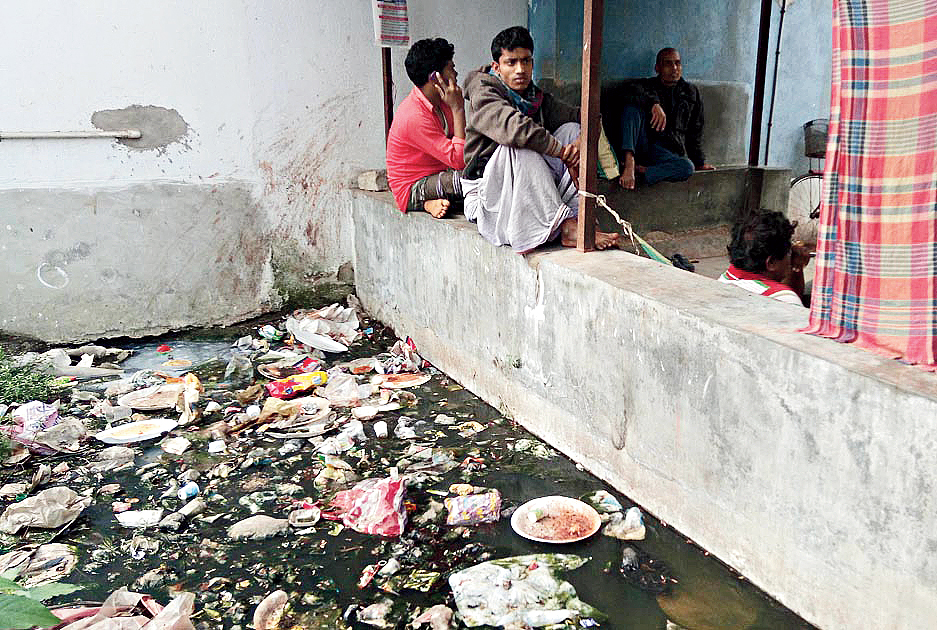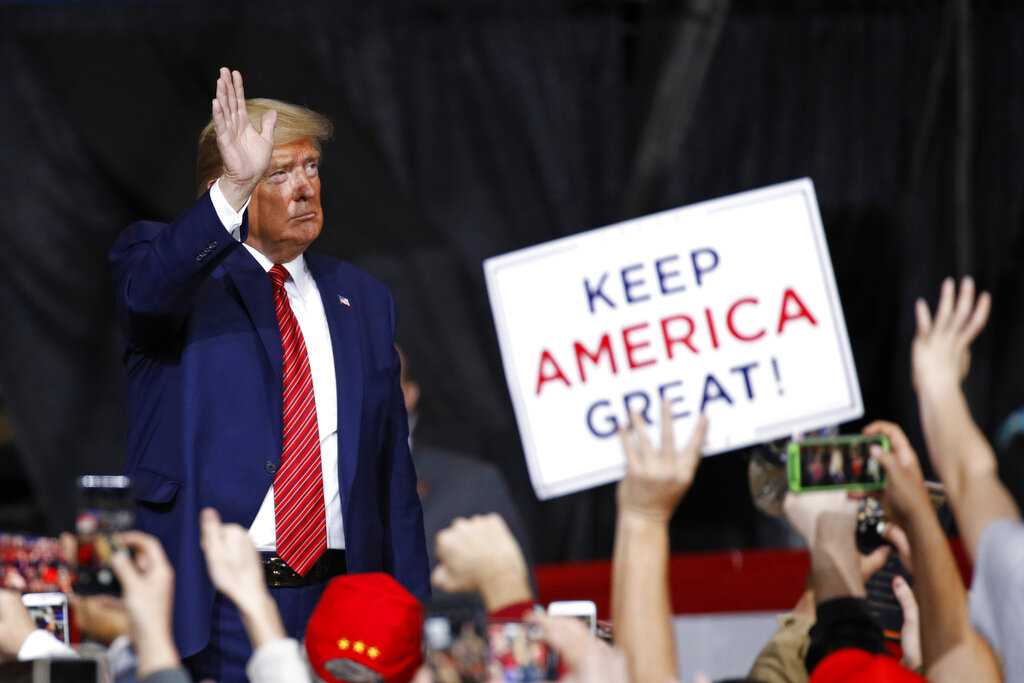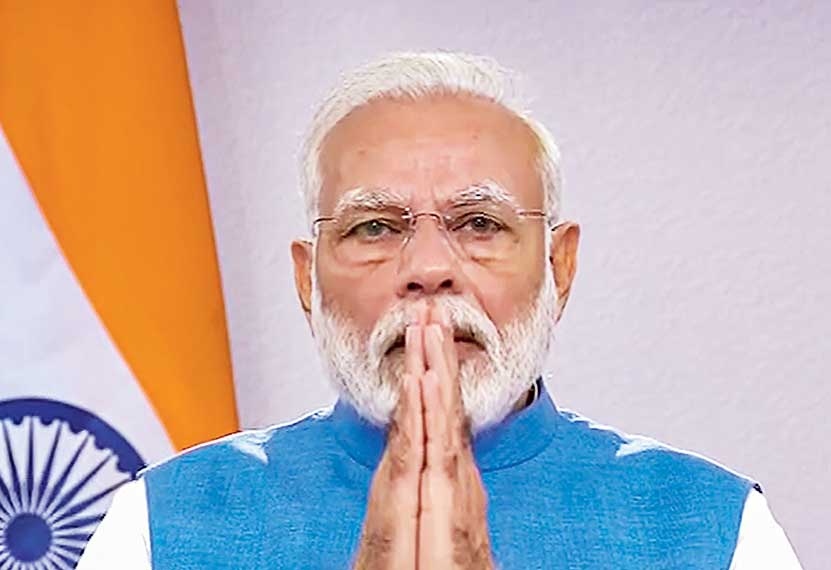The war of words between China and the United States of America over the Covid-19 pandemic recalls American bitterness in the 1980s over Soviet allegations concerning the probably even more dangerous ‘Acquired Immunodeficiency Syndrome’ or AIDS. India’s Patriot newspaper was in the eye of that storm.
This time round, bickering threatens to undo the welcome signs of cross-border cooperation so necessary to combat an infection that knows no borders. There were early indications of China under-reporting the outbreak as it did initially with ‘Severe Acute Respiratory Syndrome’ so that travelling in China in 2002, I wondered why some people wore masks. Now, the West admits that the “unprecedented speed” of the global rescue effort became possible because the Chinese shared their research, thereby setting the stage for larger tests in a battle to conquer a virus that had, at the time of writing, infected 229,328 people globally and taken a toll of 9,754 lives.
“The only exit strategy from this long term is vaccination or some other kind of innovative technology,” says Neil Ferguson, Britain’s foremost epidemiologist, who thinks 20,000 British deaths would be a win, but 260,000 more realistic. Britain’s seven critical care beds per 100,000 people is thought to be low, compared to Germany’s 30 and Italy’s 14. The British expect 4.4 per cent of the population, rising to 27.3 per cent for those over 80, to be hospitalized, with 30 per cent of those that are hospitalized requiring critical care.
No wonder Bhutan’s prime minister, Lotay Tshering, a practising urologist, stressed more than once during Narendra Modi’s video-conference that this life and death battle is with an unseen enemy. He also reminded listeners of the economic fallout. It’s a far more perilous real-life version of those sci-fi thriller films with tantalizing titles like The Peril that Came out of the Sea and The Monster from Outer Space that kept audiences on tenterhooks in the 1950s. It’s a measure of how little is still known of an illness that can strike anyone out of the blue that although 35 companies and academic institutions are working tirelessly to create a vaccine without worrying side-effects, officials reckon it may take up to 18 months for the effort to bear fruit. Scientists don’t expect even human trials before April.
It’s all the more tragic that a repetition of the polemics of 40 years ago should threaten pragmatism. The row then was sparked by the Patriot report, “AIDS may invade India”, subtitled, “Mystery disease caused by US experiments”. It cited a letter to Patriot’s editor by a “well-known American scientist and anthropologist” who wished to remain anonymous but claimed the “deadly mysterious disease was a result of the Pentagon’s experiments to develop new and dangerous biological weapons.” According to the writer, the US had sent senior scientists to Africa and Latin America to find dangerous viruses alien to Asia and Europe and had their findings analysed in Atlanta and Fort Detrick. Apparently, the AIDS virus threatened to engulf India because of the Pentagon’s continuing experiments in Pakistan.
According to the Americans, a KGB defector, Ilya Dzerkvelov, claimed his organization had set up Patriot solely for disinformation, the specific purpose being to exacerbate relations among the US, India and Pakistan. Aruna Asaf Ali, Patriot’s founder and one-time mayor of Delhi, was described by a British businessman as “the eastern incarnation of Charlotte Corday”, the French revolutionary who murdered the Jacobin leader, Marat, and was posthumously sanctified as L’ange de l’assassinat, the Angel of Assassination. The Briton remembered her as “a wild, intense looking woman” inciting the naval mutineers in Bombay in 1946 “while the rumble of Churchill tanks could be heard in the streets outside.” V.K. Krishna Menon was a frequent unannounced visitor to her Patriot office where the editor, Edatata Narayanan, was her companion. The last time I saw Mrs Asaf Ali, she was shuffling slowly forward in the receiving line at the Rashtrapati Bhavan reception for Nelson Mandela. She and Narayanan were eventually ousted by Patriot colleagues whose greed, she complained, was stronger than their creed.
I don’t know if Dzerkvelov mentioned R.K. Mishra who was editor-in-chief and managing director for 30 years of this supposed Soviet instrument. Mishra also served Atal Bihari Vajpayee, undertook covert missions for the Bharatiya Janata Party regime, and eventually transferred his services to the Ambanis. Another riddle, wrapped in a mystery, inside an enigma? The paper’s history seems to have been as tortuous as that of the disease it proclaimed.
Washington accused the KGB of mounting Operation InfeKtion to undermine and isolate the US and create tensions over American military bases, which were blamed for infecting locals with AIDS. Moscow was also charged with trying “to distract international attention away from its own offensive biological warfare programme”. In addition to anthrax, it allegedly developed tularemia, the plague and cholera, as well as botulinum toxin, enterotoxins, and mycotoxins. An alternative explanation was that Moscow was retaliating for American accusations of using chemical weapons in Southeast Asia, later dubbed the yellow rain incident.
This time, it’s Donald Trump who “improved” — if that be the word — on his secretary of state’s description of coronavirus as the “Wuhan virus” by calling it the “Chinese Virus”. China retaliated by denouncing Covid-19 as an American disease introduced to China last October by the 17 teams and more than 280 athletes and other staff members the Pentagon sent to the Military World Games in Wuhan. It also threatened to expel the correspondents of three major American newspapers reporting from China. If that happens, the lockdown will indeed be complete. The world will know only what Beijing chooses to disclose.
Despite Modi’s brave rhetoric and public relations gimmicks like Sunday’s “Janata Curfew”, India’s position must be far more dire than admitted. The incidence seems low because of natural insulation but mainly because no one knows (except when it comes to counting votes) what happens to ‘the great unwashed’, to use the term attributed to Edmund Burke. Perhaps we should be thankful that at least the prime minister does not pander to mass ignorance and superstition (or expose his own ignorance and superstition) by repeating saffron brigade fatuities like thanking the “blessings of Hindu gods” for saving Indians from infection (West Bengal’s Dilip Ghosh), blaming coronavirus on non-vegetarian food (Sakshi Maharaj) and recommending cow-urine therapy (Chakrapani Maharaj). However, his invocation of Navratri and Shakti worship comes perilously close to uninformed populism.
Instead of posing against a banner with the boastful slogan, “Setting an Example for the World”, at the video-conference, Modi should emulate North Korea’s Kim Jong-un who honestly laments the absence of “modern medical and health facilities” which he promises to remedy. We live on delusion. A health and family welfare ministry email instructs me to “throw used tissues into closed bins immediately”. Where in Delhi, Calcutta or any other city of this benighted country rampant with garrulous politicians who talk more than they do will I find a closed bin? How many Indians use tissues for that matter? “Resolve” and “restraint” — Modi’s catch-all panacea — won’t create critical care beds. Nor will Sunday evening’s five minutes of cacophonous clapping, bell-ringing and wailing sirens produce testing, treatment and other facilities.
“What does the rich save and the poor discard?” was a crude schoolboy riddle in my childhood. The answer — nasal mucus — is still flicked away by India’s poor. Given the state of even first-class, air-conditioned train bathrooms, it’s easy to believe that a woman returning from Europe wanted to escape the Uttar Pradesh hospital where she was quarantined because “the sight of the unhygienic condition of the toilets made her retch”. The filth that surrounds us, the neglect of hygiene and sanitation, the callous quality of medicare, squalid habitations and congested transport ensure Indians will die like flies if the pandemic really comes here.












